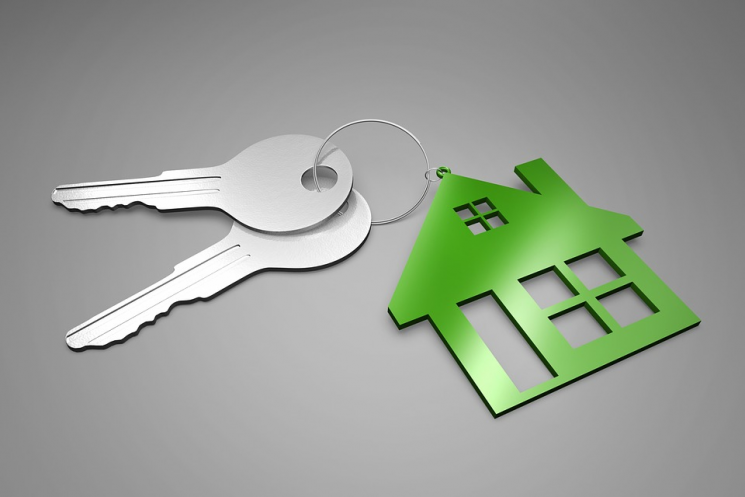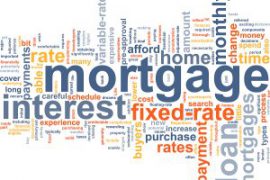What is a mortgage?
While you might find yourself embarrassed to ask, you’d be surprised by the number of adults in the UK who are frantically googling the same question.
While most know the basics, that it’s money you borrow so you can buy a property, there are still usually a thousand questions that come after that. How do I get one? How much do I need to borrow? Which bank or building society should I use? Will I be accepted? Can I use an online mortgage broker?
A mortgage is a huge financial commitment, so it’s good to be asking questions before you apply. As possibly the largest loan you’ll ever take out, making sure you’re in the know about every step of a mortgage process is crucial to avoid stress.
So, while we’ve got you here, we’re going to give you a basic rundown of what a mortgage exactly is, how to apply, and what to look out for when shopping around for one.
Let’s get started.
What is a Mortgage?
In layman’s terms, a mortgage is a loan taken out for the sole purpose of purchasing a property and/or land. This could be for a house, a flat, a field or a whole building. Most people find themselves needing one as the cost of a home is usually too great to afford outright.
Most mortgages run for about 25 years but can go for longer or be paid off quicker. It all depends on your financial situation and the mortgage product you end up choosing.
Like any other loan, you need to be careful. Not only will it affect your credit score, but if you do fall behind on your mortgage payments then you will be in danger of losing your home.
What Types of Mortgages are There?
There are many different types of property, just as there are many different types of people looking to borrow. With this being the case, naturally there are more than a few different types of mortgage to consider.
Most mortgages can be broken down into two categories: interest-only mortgages, where you only pay back the interest on the loan each month and then the amount you originally borrowed at the end of the term, and repayment mortgages, where you pay back the sum and the interest every month. However, there are several kinds of mortgage within these two categories:
Tracker Mortgages
This type of mortgage is a variable rate mortgage. This means that the amount of interest you pay month to month is subject to change. The interest is tied to an external rate, usually the Bank of England base rate, and is set at a certain percentage either above or below it.
Fixed-Rate Mortgage
With a fixed-rate mortgage, your interest rate is guaranteed to stay the same for a set period (Usually 2-10 years). Once the time is up, your rate will switch to the lender’s standard rate.
Discount Mortgage
Another type of variable rate mortgage. These mortgages have an interest rate lower than the lender’s standard variable rate, but can change by any amount at any time.
Offset Mortgage
With these mortgages, savings are held in a linked bank account and are subtracted from the amount of interest you pay. For example, if your mortgage is £400,000 and you have £25,000 in a
savings account, you’d only pay interest on £375,000.
Standard Variable Rate Mortgage
This is the mortgage you’ll be transferred to when a tracker, fixed or discount mortgage deal comes to an end. These tend to have higher interest rates than other types of mortgage, usually to make up for the lower interest paid at the beginning of the deal.
These are just a few of many different types, some more niche than others. Make sure to have a proper look around to see which deal could work best for you and your financial situation.
Where to Find the Best Deal
Once you’ve done your own research into the type of deals you might be interested in, it’s time to find the right lender for you. Unfortunately, there are a LOT of them on the market, so narrowing the playing field can be a little tricky. Using local mortgage advisers could be a good place to start.
You want to make sure that you consider as many different options as possible and so should avoid going straight to a bank or building society. Even if you have been using their services for years, they are only going to have a limited number of mortgage products available. They also definitely won’t tell you of any better deals meaning you’re already limiting yourself.
One of the best things you can do is to use a mortgage broker. These act as a middle man between you and the lender and can compare and contrast thousands of different deals on the market. Available as an online service or as a physical person you talk to, after putting in a few details like your deposit size and if you’re a first-time buyer or not, you’ll be able to see which deals could be best for you and if you’re likely to be accepted. It’s always best to take advice from an expert, unless you’re already very seasoned in the financial field. After all, this is one of the most significant monetary decisions that you’ll make. You should take all the help you can get.
Be Aware of Other Costs
One final thing you should consider is the amount of money you’ll need for the whole process. When it comes to taking out a mortgage, you’ll need more money available than just your deposit.
You’ll also need to pay:
- Stamp Duty
- Building’s Insurance
- Life Insurance
- Valuation fees (if you’re selling a property)
- Moving costs
Make sure to sit down and go through every expense you can think of. You don’t want to be in financial trouble before you even set foot in your new home!
Mortgages don’t have to be complicated. As long as you do the right research and make sure to have an in-depth look into your available deals, then you shouldn’t have any trouble finding the right mortgage deal for you.





